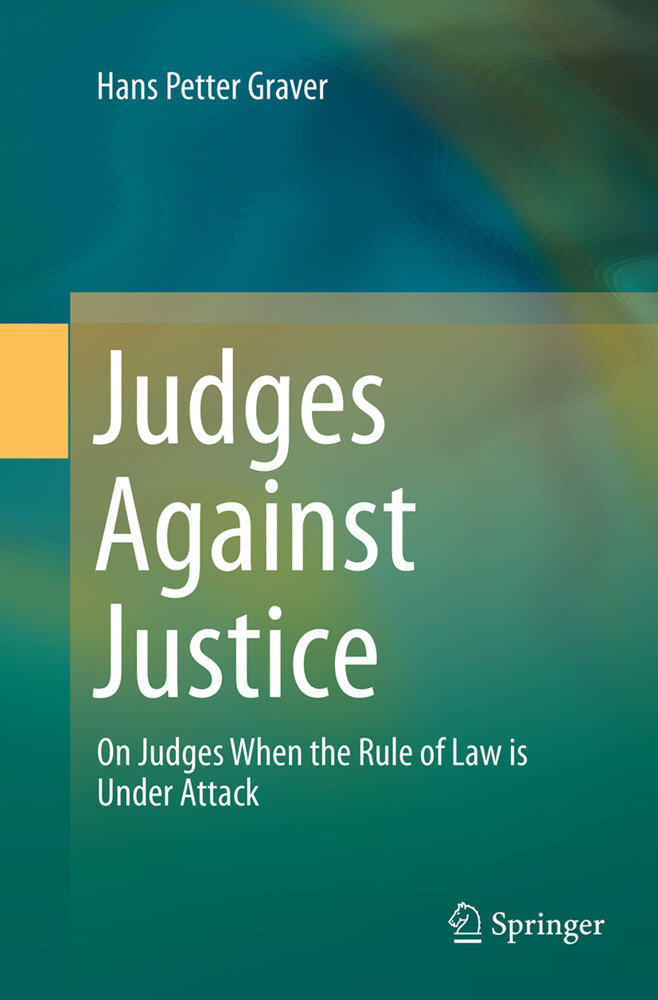
Zustellung: Do, 14.11. - Sa, 16.11.
Versand in 2 Tagen
VersandkostenfreiBestellen & in Filiale abholen:
This book explores concrete situations in which judges are faced with a legislature and an executive that consciously and systematically discard the ideals of the rule of law. It revolves around three basic questions: What happen when states become oppressive and the judiciary contributes to the oppression? How can we, from a legal point of view, evaluate the actions of judges who contribute to oppression? And, thirdly, how can we understand their participation from a moral point of view and support their inclination to resist?
Inhaltsverzeichnis
The Judicial Role and the Rule of Law. - Part One: The War of Law: State Repression and the Rule of Law. - Repression of the Judiciary. - Judicial Acceptance of Oppression. - The Opposition. - Part Two: Holding Judges Responsible for Injustice: The Argument for Criminal Liability. - The Condition of Illegality under International Law. - The condition of Illegality and Failed Usurpations. - The Condition of Illegality in Transitional Settings. - Judges in Special Courts. - Justification of Judicial Oppression. - A Special Immunity for Judges? . - Holding Judges Responsible. - Part Three: The Moral Side of Judging: The Positivism Thesis. - What Positivism? . - Alternative approaches to Legal Interpretation. - Beyond Legal Theory as Explanation. - The Lesser Evil. - Judges for Justice.
Produktdetails
Erscheinungsdatum
22. September 2016
Sprache
englisch
Auflage
Softcover reprint of the original 1st ed. 2015
Seitenanzahl
312
Autor/Autorin
Hans Petter Graver
Verlag/Hersteller
Produktart
kartoniert
Abbildungen
X, 301 p.
Gewicht
476 g
Größe (L/B/H)
235/155/17 mm
Sonstiges
Paperback
ISBN
9783662525944
Entdecken Sie mehr
Pressestimmen
Concerned with the role and behaviour of judges in developed western states during tyranny and authoritarian rule, including certain instances of occupation. the book deserves a wider audience. In particular it should be of interest to lawmakers, judges and others concerned with preventing new instances of oppression, and everybody else interested in the role of judges in times of existential threats to society. (Terje Einarsen, Nordic Journal of Human Rights, Vol. 34 (3), 2016)
Bewertungen
0 Bewertungen
Es wurden noch keine Bewertungen abgegeben. Schreiben Sie die erste Bewertung zu "Judges Against Justice" und helfen Sie damit anderen bei der Kaufentscheidung.









